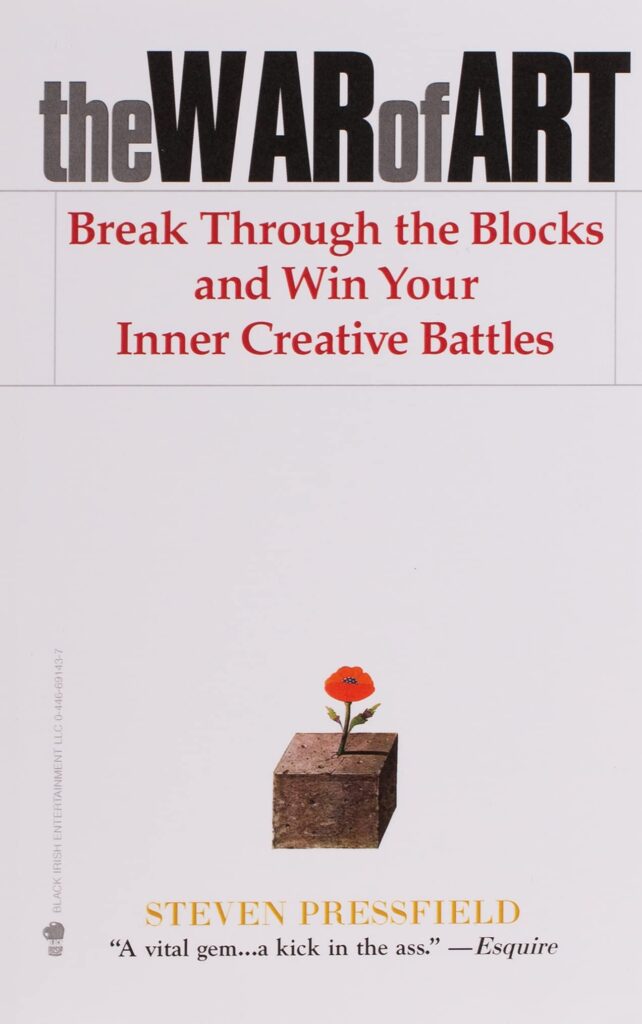Writer, Illustrator, Philosopher
“The War of Art” by Steven Pressfield

Pressfield draws on his varied writing career to provide sound, no nonsense advice for anyone with creative ambitions. ‘Creative’ here is defined quite broadly, and he makes clear that what he’s saying can apply to almost any activity in life. If you have an unrealised dream, the one thing that’s probably holding you back is resistance. This is his term for the many types of self-sabotage that we engage in – we’re not good enough, this isn’t the right time, what’s the point, and so on. Pressfield identifies and dissects the various forms that resistance takes, and shows you how you might overcome them.
But – and this is perhaps the key point of the book – he also explains why he thinks you should pursue your dreams: if you don’t, you will never be truly happy or fulfilled. Being creative (in a broad sense), reaching beyond yourself, is an urge that sits buried in all of us. If we deny that drive, then we create more problems than we avoid. Art is a struggle – in fact, war, as the title puts it – but it is a battle worth fighting. Note, here, that victory is not about achieving fame or status – the type of activity he is advocating here is for its own sake (in his own terms, it is not ‘hierarchical’, but ‘territorial’). As he puts it (quoting the Bhagavad Gita), we have only a right to our labour, not to the fruits of our labour. So, work, but don’t expect anything from it apart from the satisfaction of expressing that creative and productive compulsion to make and do and stretch ourselves – whatever form that takes. Anything else is a bonus, and should be left to the fates.
Pressfield expresses this better than I have here, of course, and there are many points in the book where I found myself nodding in recognition: “I do that! I think that!” For this insight alone I think the book is worth reading. However, there’s more.
Part 2 looks at the professional habits that we can employ to facilitate the creative process. These are very useful and provide a practical framework in the battle against resistance. Part 3 is more conjectural, and focuses on the question of inspiration and where we get our ideas from. If you are the sort of person who might be put off by Pressfield’s spiritual talk, here, then the concepts can be translated into whatever terms you’re comfortable with. The main point is simply that creativity is something that we facilitate – it is a letting go, a channelling (from wherever). If you sit down and work, even if you feel completely uninspired, that effort itself sets in motion a process, and things begin to happen – something I’ve myself observed many times.
Overall, then, a great little book. That it is short, and that each of its chapters are no more than a paragraph or two, is occasionally frustrating – especially when the idea being discussed feels worthy of more space. But this is a minor flaw, and overall the brief treatments provide more than enough food for thought.
Buy Book
Gareth Southwell is a philosopher, writer and illustrator from the UK. He is the author of the near-future sci-fi novel MUNKi, which concerns robots, the hunt for the Technological Singularity, and people swearing in Welsh.
Note: due to spam, comments have been disabled on this post, but you are welcome to contact the author to discuss further.